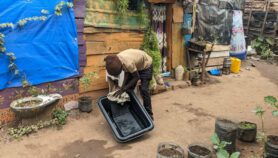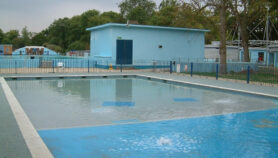By: Aimable Twahirwa
Send to a friend
The details you provide on this page will not be used to send unsolicited email, and will not be sold to a 3rd party. See privacy policy.
[KIGALI] It is time to reinvent the toilet for the developing world where other attempts to improve sanitation have failed, according to the Bill & Melinda Gates Foundation.
Although billions of dollars have been poured into sanitation infrastructure in the developing world, rapid population growth means that there are now more people without access to improved sanitation in Sub-Saharan Africa than ever before, according to Sylvia Mathews Burwell, president of the Global Development Program at the foundation.
"Not only is using the world’s precious water resources to flush and transport human waste not a smart or sustainable solution, it has simply proven to be too expensive for much of the world," she told the AfricaSan Conference, the third African Conference on Sanitation and Hygiene last week (19 July).
The Bill & Melinda Gates Foundation is providing grants worth US$42 million in total to come up with a new toilet concept and more than 20 universities worldwide have submitted ideas. The University of Kwazulu Natal, for example, is working their local municipality to design a community toilet that can turn waste into clean water and energy.
"We asked that they develop a stand-alone facility without piped-in water, a sewerage connection, or outside electricity … [with] a total cost including capital, operation, and maintenance of just a few pennies per day per person," Burwell said.
Ideas include a toilet that turns human waste into ash and potable water through rapid dehydration and smouldering; a toilet that converts human waste into soil-improving biochar soon to be tested in Nairobi’s slums; and a method of treating human waste with microwaves to turn it into gas.
Major challenges will be to ensure that the new toilets are acceptable to people and to cover whole rural populations with the scale up of good ideas.
"Our key focus is supporting local innovations in sanitation and hygiene," Burwell told SciDev.Net. "The project, which will provide a new cheap and waterless toilet, will also be dedicated to training local communities by helping them to better use this technology."
But getting rid of unsanitary defecation alone may not be enough to stem hygiene-related diseases.
Although new sanitation facilities can help prevent waterborne diseases in poor communities, it is also important to introduce water storage and distribution systems, according to Ananias Nsengiyumva, a medical doctor based in Kigali.
He told SciDev.Net: "Insufficient capacity to ensure proper water storage and filtration still has negative impacts on rural communities who risk contracting diseases like cholera, bacillary dysentery and typhoid."
Samuel Nkomo, Zimbabwean Minister of Water Resources Development and Management, said that several African countries still lag behind towards achieving the UN Millennium Development Goal on sanitation.
At the conference several African countries including Ghana, Malawi and Rwanda, announced major sanitation projects aimed at providing new toilet prototypes to increase availability of water supply, and sanitation services in rural areas.
See below for a Bill & Melinda Gates Foundation video about the project:













